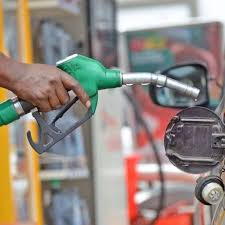As the macroeconomic conditions and outlook of the Nigerian economy continue to look challenging and bleak for many businesses, many have in the interim, adjusted prices and forecasts. For those without the leverage to increase prices, the options left to them are shrinking.
The recent increment in petrol price and the resultant effect on mobility, logistics, tourism and the general cost of living cannot be overemphasized. The ripple effect is one usually felt instantaneously as petrol is a major cost input to most services and products. Few weeks ago, ride-hailing company Bolt, adjusted the pricing metrics for its services to accommodate the current economic realities. Its major rival Uber, followed suit almost immediately.
While these price adjustments with the corresponding perks are commendable, we have decided to take a different look at how users will interact with these services going forward and the effect on the quality of services from these platforms.
Shorter Rides
With an upward review of all pricing components of a trip; base fare, kilometer/distance and time, we would be seeing passengers take shorter rides to avoid these charges. For cities and periods notorious for gridlocks, we should expect a sharp drop in bookings at these times to evade charges associated with extended stay on a trip. An implicit effect of this is the impact on data collection by ride-hailing companies which in turn affects data-driven decision making and insights.
Infrequent Maintenance
A runway inflation, shrinking disposable income and a drop in ride bookings all point to reduced income to driver partners which summarily extends to routine car maintenance. In cases where maintenance schedule is adhered to, we could see use of inferior parts, which in the long run affects the consumer experience.
Carpooling
We have at some points in the past few months seen ride-hailing passengers share their ride with other unknown and unfamiliar passengers on the same route in a bid to share cost of the trip. This is not unexpected and we would see more of this as platforms adjust prices and driver partners get on the road. We would likely see a complete build out of this particular offering/service on these platforms as they observe this new trend. Finally, on this, we might see a comeback of carsharing startups in the near future to meet this emerging market need.
Long Wait and Estimated Time of Arrival.
Our informal and casual conversations with driver partners reveal a persistent consideration to quit the business as the cost for petrol, maintenance and others rise. A depleted car pool implies a longer wait for nearby rides on the app. This also means a consideration of other options. Ride-hailing is built around the promise of fast response/availability, comfort and safety. A longer estimated time of arrival (ETA) defeats the value proposition of the business.
We will continue to observe these trends and update our views accordingly.

